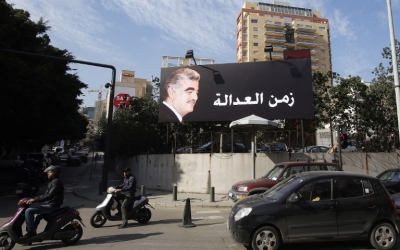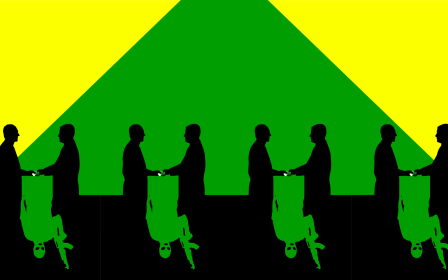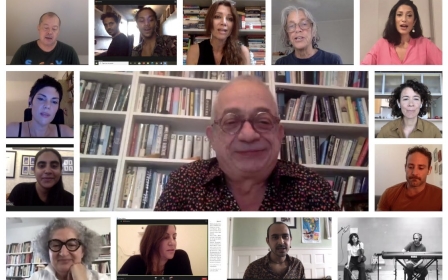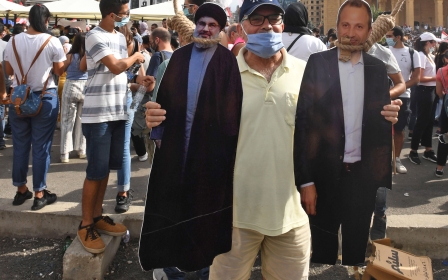'What's the use of this tribunal?' Weary Lebanese dismiss Hariri assassination verdict
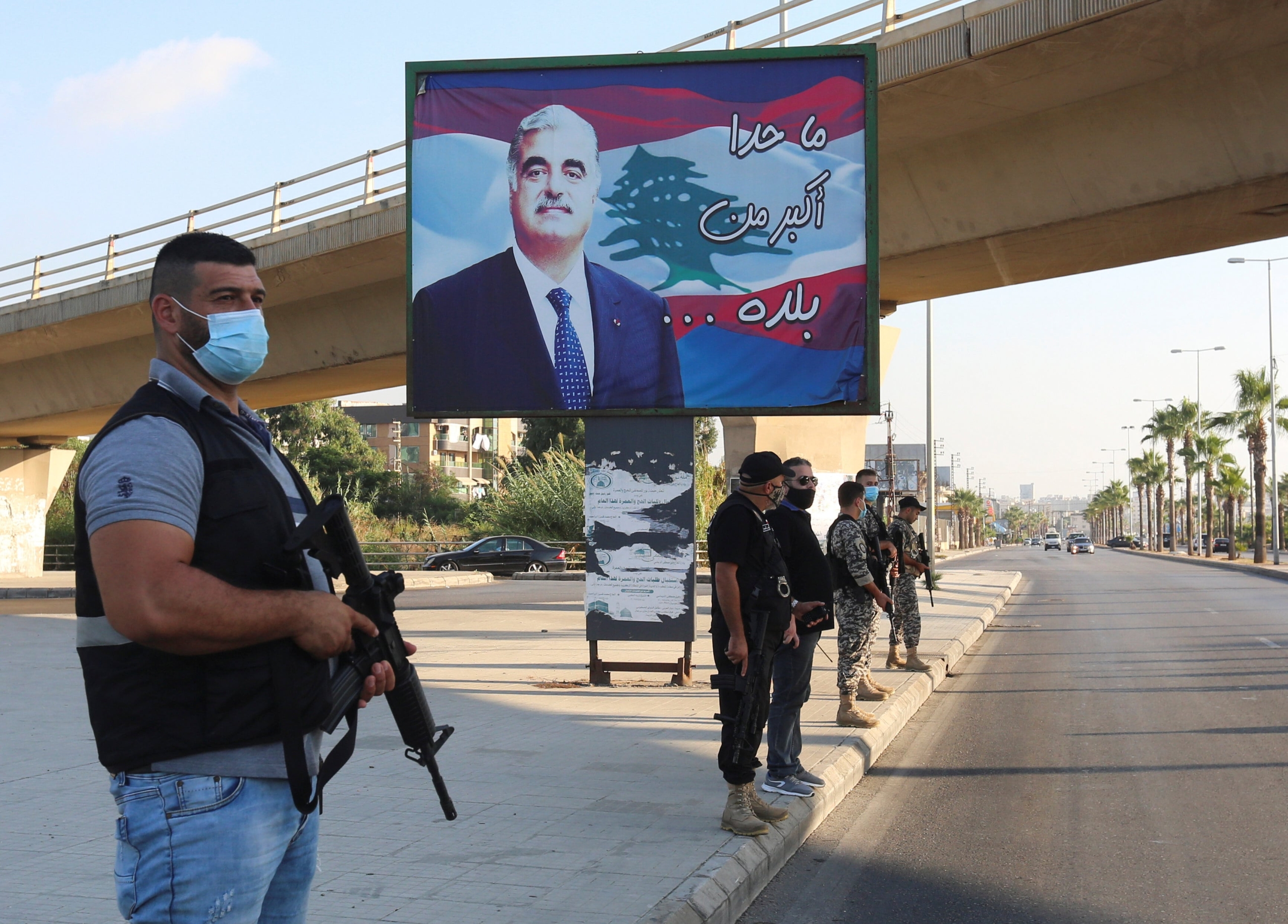
More than 11 years after a UN-mandated tribunal was set up to investigate the 2005 assassination of former Lebanese Prime Minister Rafik al-Hariri, the long-awaited verdict, which found one suspect guilty, was brushed off by many Lebanese who found it disappointing and a waste of their money.
The streets of Beirut were almost empty on Tuesday when the Special Tribunal for Lebanon (STL), based in Leidschendam in the Netherlands, issued the verdict that found no evidence of direct involvement by the leadership of Hezbollah, which is backed by Iran, or the Syrian government.
"I just came for work but I'm not hanging out, I'm going straight home, we don't know what can happen," Andrea, a 27-year-old banking employee, told Middle East Eye minutes before the verdict was announced.
"I'm afraid there will be violence or protests," she said.
Hariri, along with 21 other people, was killed on 14 February 2005 in an attack that plunged Lebanon into what was then its worst crisis since the 1975-90 civil war.
New MEE newsletter: Jerusalem Dispatch
Sign up to get the latest insights and analysis on Israel-Palestine, alongside Turkey Unpacked and other MEE newsletters
Days after the bombing, Syrian forces, which had been based in Lebanon for more than 40 years, were forced to withdraw from the country as many Lebanese blamed Damascus for the killing.
'It was the will of regional and international powers to make this story fade away gradually and then come to a verdict like this'
- Ahmed Samy Lotf, research assistant at Saint Joseph University in Beirut
In 2007, an international tribunal was created to investigate the murder. In 2011, the court based in the Netherlands accused Mustafa Badreddine, Salim Ayyash, Assad Sabra and Hussein Oneissi of the killing.
In 2013, a fifth warrant was issued, against Hassan Habib Merhi. All five men were alleged to be members of Hezbollah, a Lebanese Shia party supported by Syria and Iran.
Despite international arrest warrants, none of accused were arrested. In 2016, Badreddine was declared dead in Syria.
Hezbollah has always denied all involvement in the assassination.
On Tuesday, only Ayyash was found guilty. His sentence remains to be determined, while the other defendants were acquitted through lack of evidence.
Regarding the involvement of Hezbollah or Syria, the tribunal concluded that although "Syria and Hezbollah may have had motives to eliminate Mr Hariri and his political allies… there is no evidence that the Hezbollah leadership had any involvement in Mr Hariri's murder and there is no direct evidence of Syrian involvement".
Saad Hariri, the son of the late prime minister, said he accepted the verdict, adding it was time for Hezbollah to assume responsibility.
"I think everybody's expectation was much higher than what came out, but I believe that the tribunal came out with a result that is satisfying," he told reporters.
'Millions of dollars wasted'
In Beirut, reactions were a mixture of despair and exasperation. "We've known who killed him for 15 years, and nobody goes to jail. What's the use of this tribunal?" said one woman, who asked not to be named.
Ahmed Samy Lotf, a research assistant at the Institute of Political Science at Saint Joseph University in Beirut, told MEE that it was "the will of regional and international powers to make this story fade away gradually and then come to a verdict like this".
"In the end it's millions of dollars of wasted money for Lebanese taxpayers and for the international community," he said.
The investigation and trial in absentia of the alleged Hezbollah members has taken 15 years and cost roughly $1bn.
Nasser Hammoud, the general coordinator of Saad al-Hariri's Future Movement party in South Lebanon, welcomed the announcement, saying: "We need to put this matter to rest."
In Lebanon, where 18 religious communities co-exist, the political system is a delicate balance of power. The president of the Republic is always a Christian, the prime minister a Sunni Muslim and the head of parliament a Shia Muslim.
"This verdict is important for the Lebanese and for the Sunnis who are currently going through a period of political chaos. Since 2005, the Sunnis have lost a lot of power. They are no longer on an equal footing with other sects," Hammoud said.
For others, the trauma of the assassination is still there. Maya, an urban planner, lives a few streets from the scene of the attack. On 14 February 2005 she was 16 years old.
"It was the biggest shock of my life. For a long time, whenever I saw a car I immediately thought of the explosion," she told MEE.
"This tribunal is historic and symbolically it is important, but in the end nothing prevents the perpetrators from doing whatever they want. For me all these events no longer carry any weight.
"I've been going through this since I was a child and today the only thing I want is to leave this country."
Middle East Eye delivers independent and unrivalled coverage and analysis of the Middle East, North Africa and beyond. To learn more about republishing this content and the associated fees, please fill out this form. More about MEE can be found here.


